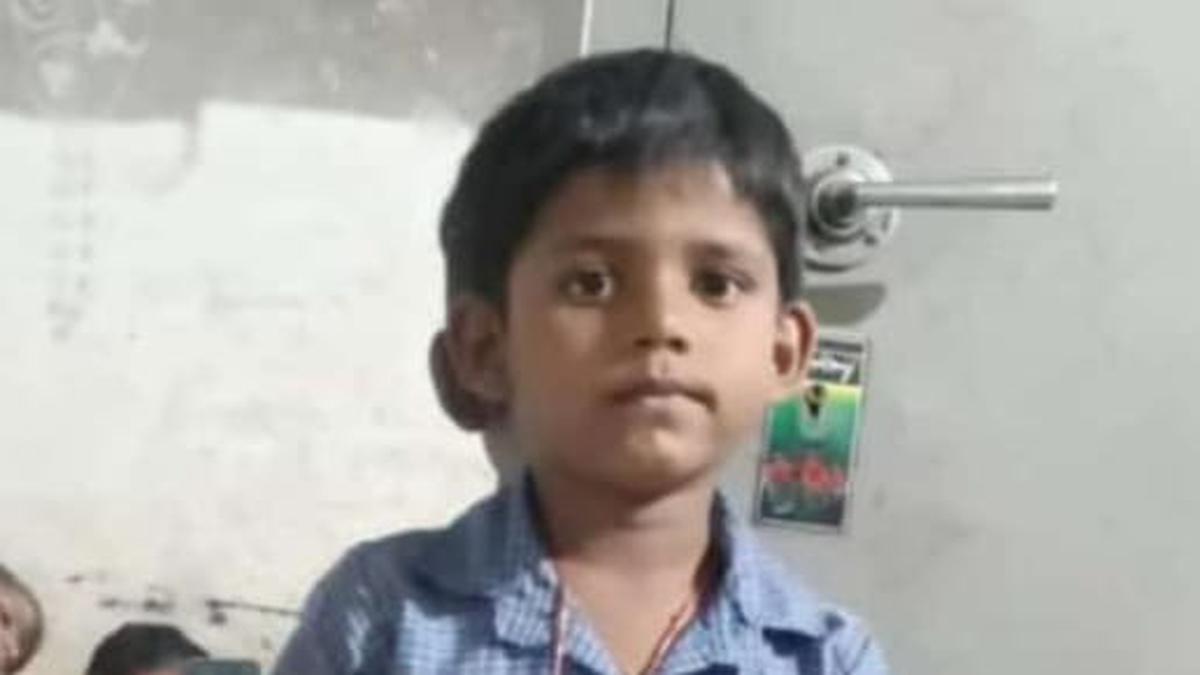
Six-year-old boy dies of snake bite near Vellore
The Hindu
Six-year-old R. Shanmugavel died due to snake bite in his farmland at Sengundram village near Gudiyattam town in Vellore. He was bitten while collecting leaves from a curry leaf plant. His father found him unconscious and rushed him to the Taluk Hospital in Gudiyatham. He later succumbed to injuries at the Government Medical College Hospital in Vellore. A case has been filed and investigation is ongoing.
A six-year-old boy died due to snake bite in his farmland at Sengundram village near Gudiyattam town in Vellore.
Police said the victim, identified as R. Shanmugavel, who was a Class 1 student in a private school in the village, was bitten by a snake as he went to bring some leaves from the curry leaf plant (karuvepillai) in his farmland around 6 p.m. on September 16 (Saturday). The family stays in a thatched house in the farmland. After a long time, the boy did not return home.
His father, K. Ranjith Kumar, who works as a welder, searched for him in the farmland where he found his son in an unconscious condition. Immediately, Kumar rushed his son to the Government Taluk Hospital in Gudiyatham. Later, the boy was referred to Government Medical College Hospital in Vellore where he succumbed to injuries and died on Monday evening.
A case has been filed by Gudiyatham Taluk police. Further investigation is on, police said.

“Writing, in general, is a very solitary process,” says Yauvanika Chopra, Associate Director at The New India Foundation (NIF), which, earlier this year, announced the 12th edition of its NIF Book Fellowships for research and scholarship about Indian history after Independence. While authors, in general, are built for it, it can still get very lonely, says Chopra, pointing out that the fellowship’s community support is as valuable as the monetary benefits it offers. “There is a solid community of NIF fellows, trustees, language experts, jury members, all of whom are incredibly competent,” she says. “They really help make authors feel supported from manuscript to publication, so you never feel like you’re struggling through isolation.”

Several principals of government and private schools in Delhi on Tuesday said the Directorate of Education (DoE) circular from a day earlier, directing schools to conduct classes in ‘hybrid’ mode, had caused confusion regarding day-to-day operations as they did not know how many students would return to school from Wednesday and how would teachers instruct in two modes — online and in person — at once. The DoE circular on Monday had also stated that the option to “exercise online mode of education, wherever available, shall vest with the students and their guardians”. Several schoolteachers also expressed confusion regarding the DoE order. A government schoolteacher said he was unsure of how to cope with the resumption of physical classes, given that the order directing government offices to ensure that 50% of the employees work from home is still in place. On Monday, the Commission for Air Quality Management in the National Capital Region and Adjoining Areas (CAQM) had, on the orders of the Supreme Court, directed schools in Delhi-NCR to shift classes to the hybrid mode, following which the DoE had issued the circular. The court had urged the Centre’s pollution watchdog to consider restarting physical classes due to many students missing out on the mid-day meals and lacking the necessary means to attend classes online. The CAQM had, on November 20, asked schools in Delhi-NCR to shift to the online mode of teaching.









